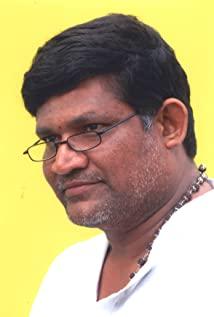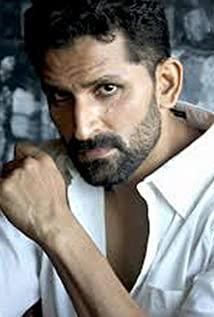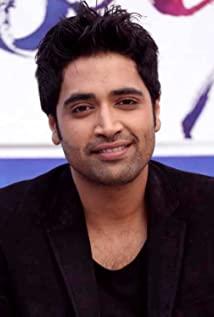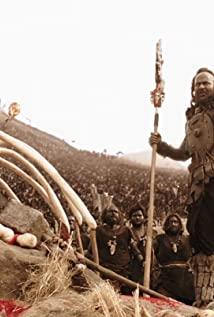to talk about “Baahuba” In the movie "The Beginning", we must first talk about the ancient Indian epic "Mahabharata". This epic is all-encompassing, covering almost all aspects of Indian culture, including thousands of years of vertical and horizontal.
The director of the whole film is like a singer who sings an Indian epic and sings this epic with his inner cry. Therefore, we can't look at some problems with ordinary people's eyes. Let me analyze some of the film for you:
1. What does the director think about the caste system?
Indians divide people into Brahmins, Kshatriyas, Vaishyas and Sudras, and their status is also ranked in the lower order. Of course, how the strict caste system is very much on Baidu, I will not go into details here. Compared with this movie, the caste system is reflected, but it is not obvious. For example, the hero of the movie has a disdainful attitude towards the Brahmins of the ethnic group where his adoptive parents belong. He said: How are you and Shiva going to hurt my mother? , he put the shackles under the waterfall of the Ganges to please his mother. In addition, Katapa's allegiance to the king as a slave was not because he was a slave, but his family swore to protect it from generation to generation. King power, there is an oath in it. I won't say much here. On the contrary, it reflects the director's denial of the Indian caste system and praise for people's qualities such as filial piety and loyalty. The golden statue of the king instead of the god standing in the elephant city also shows the denial of the caste system. The woman whom the male protagonist has pursued after untold hardships is not a noble woman, but the male protagonist is still like a fool. Getting drunk is also a denial of the caste system; little Baahubali asks Katapa to feed him and call his uncle is also a denial of the caste system, businessmen who traveled the world spoke highly of the value of Katapa and was also a denial of the caste system Negatively, Katapa is a weapon expert and appeared on the battlefield as a military general during the war (note: slaves are not qualified as warriors in the Mahabharata) and so on, so we can see the progress of the director's thinking, And a complete denial of the caste system.
2. The battle for kingship The
background of the story of Mahabharata is the battle for kingship between the hundred sons of Chiguo and the five sons of Bandu, which eventually led to a great war, with countless casualties. Victory is the end. There are relevant information about this story on the Internet. You can check it out. I won’t go into details here. Compared with the opening chapter of this movie, the imperial city we see is actually the elephant city in Mahabharata, because In the movie, there are two stone elephants at the gate of the city. Basically, it can be concluded that it corresponds to the Mahabharata. On the other hand, it explains the background of our movie to the local Indian audience.
3. Praise for women
The Mahabharata tells many stories of praise for women, especially the noble qualities of the mother, aunt, and grandmother of the five brothers. In the movie, you can see such things everywhere. , wife and mother are all, especially the adoptive mother, wife and grandma of little Bajo, who are all representatives of first-class strong women and female men. I won't say much here, and everyone will know after reading it.
4. Praise people and gods
Little Bajo and Baahubali are both god-like figures, so they are all powerful and invincible heroes, armed with weapons, even if there are countless enemies, they can't help them , because they are gods, the director's humanistic spirit is expressed here, rather than the immortals and Brahmins in the Mahabharata, which reflects the progress of the director's thinking.
5. Character shaping: The people in Mahabharata are very strict about their vows and origins. Katapa was born as a slave. I personally think it is actually Pishma and Drona in Mahabharata. Co-incarnation, keeping the oath, being loyal to the kingship, and abiding by the constraints of birth and destiny are the highest moral standards for the quality of people in ancient India. Going back to the movie, it can be predicted that the fate of Katapa will also die to protect the royal power. As for whether he really dies or not, it depends on the director, but from the first half of the movie, I can see that I don't think he will die, because the director More heavily influenced by Hollywood movies, so I think he will keep the hero alive.
6. Grasp the epic nature
Little Bajo climbed a waterfall hundreds of meters vertically out of his desire for love and freedom. His courage, courage and wisdom were never born from competing for kingship, so the film's The ending is destined not to be a traditional struggle for power, but to salvation, which is echoed at the end of the film: the difference between a warrior and a king is not how many people they kill but how many people they save, and the difference between a man and a god. Therefore, we can see that the film's promotion of humanistic thinking can be described as thorough.
7. Oath decides fate?
In the Mahabharata, once a person makes an oath, he must fulfill it, otherwise he will be punished or even killed. When reading the Mahabharata, such examples can be seen everywhere, and even the oath is used as an explanation for why people's fate is like this. At the end of the epic, the poet did not forget to take the oath to ridicule the death of the five brothers and the black princess. The emphasis on the oath can also be seen in this movie. In order to realize the realization of the little Bajo's wife, Aiwentika, she left the little Bajo to save Timshina (the little Bajo's mother); Katapa complied with the The family swears to protect the kingship; Bajo takes up Ivintika's oath to save Timshina. Of course, there are also oaths to explain the fate of the characters. For example, Bajo's grandmother, Shivagmi, vowed to capture the leader of Karakoya alive, but unfortunately the leader of Karakoya was killed by her own son with a hammer. Letting her oath fail, can also explain why she lost power later and did not protect her grandson's little Bajo, and finally drowned in the Ganges himself.
8. Why is Katapa afraid of Timshina's eyes?
If you think that Kathapa is shocked and frightened by the wound and face of Timshina, then you are wrong. In Mahabharata, people think that people can get god-like ability through ascetic practice. The Kshatriya practice can achieve the height of Brahmins, and Brahmins can become immortals, but if there are kings of Kshatriya who have military exploits or extraordinary military power during his lifetime, they can cultivate into a higher "king immortal" than the general immortals cultivated by Brahmins. Through ascetic practice, a woman can obtain the divine power of which part has, burn the enemy, and even kill the enemy. Many women practice her eyes. Therefore, in the movie, Timshina should also cultivate her eyes, so ordinary people will be hurt when they look at her, but because Katapa is not an ordinary person, he is not hurt but frightened.
9. Why can Sivagmi consider Baahubali Jr. as his son?
You can see that the little Bahubali was not originally Sivagmi’s biological son, but Baha was her own son. Why can she identify Bahu as her own son? This is true in the Mahabharata. Reflecting, of course, there is such a tradition in India, that is, the wife of the eldest son in the family can take the sons of other wives or sister-in-law as his own sons, and the sons can deny her biological mother, no matter whether her mother is still alive or not, this is the case. It was legal at the time and recognized by everyone. Of course, whether this statement is correct needs to be verified.
10. Why did Bajo's father and grandfather both die young?
The answer to this can be found in the Mahabharata. The grandfather of the five sons of Bandu, Qiwu, and his father, Bandu, both died young. What is even more amazing is that when Qiwu died, he did not leave any children. For example, it is impossible to have children, so it is unclear what is in it. Therefore, there is a statement in 8. No matter whether the bloodline of the royal family is pure or not, as long as it is recognized by the family, it can be used as the heir. In the movie, Bajo's grandfather and father died young, which can also be explained, but little Bajo is of pure blood and an orthodox royal heir.
11. Is the disability of "Uncle" the same?
In the Mahabharata, Chiguo is the uncle of the five sons of Bandu. He is blind, but he is weak, ambitious, emotional and ruthless. In the movie, Bajo's uncle is also disabled but has a congenital deformity, but he is despicable and shameless. No mercy.
12. In the middle of the movie, what is the metaphor for the little Bajo flying up and slashing the head of Baja's son?
In the traditional concept of Indians, it is believed that a man having a son means the continuation of the man's life, the continuation of the family lifeline, the continuation of imperial power and the continuation of all kinds of life. The absence of a son or the death of a son means life, family fate and rights. Because of the decline and loss of a son, a woman attaches great importance to having a son, and a woman also has a son as her mission. A woman with a son is naturally considered a woman of status, such as Zhenxin, Gongti, and Shakundala in the Mahabharata. Wait a minute, so the eldest son of Baah who beheaded by Baah with one knife means that Baja's rule is coming to an end, and everyone will have enemies to Baahubali and Baahubali's son instantly become monarchs, and some people will become monarchs. The transformation into a god, because the little Bajo is the god who saved them, and the only legitimate heir of the kingdom, naturally should be loyal to him. The transition from hostility to advocacy is so fast that no explanation is needed.
13. The front is always the front and the back is always the back?
Bajo and Baja: Bajo uses a golden horse head knife, which is extremely sharp. Baja uses a golden hammer linked by a gold chain, which can be long or short. Bajo advocates wisdom, protection and construction, while Baja is killing and destroy.
In the Mahabharata, when the eldest son of the state was born, the wild wolves were screaming in the jungle, the elephant city was covered with dark clouds, the livestock died in large numbers, and the gods were gone. The disaster of the Bharat tribe is also the disaster of the entire Indian continent, and the enemy has always been described as a negative character in the entire poem; on the contrary, the five sons of Jianzhan were born with colorful clouds, and the world will be saved by them. In the narration of his poems, they are all incarnations of justice. They endured humiliation and finally won the kingship. Everything they did was just and legal. Therefore, in the movie, Baja and Bajo are narrated and developed in this way from childhood to adulthood, which is also an introduction to promote the movie to a climax.
Prediction of the film
1. Baahubali's death is really because of
this very simple. Baja thinks that Bajo has robbed his throne and women, so he threatens to use Katapa to kill Bajo and start a war after a conspiracy. As a result, Bajo was killed, his wife was captured, and the child re-emerged under the protection of his grandmother. Catapa actually followed Bajo, so his killing of Bajo also reflected the Bajo who died of betrayal in the beginning. Will also hint at the fate of Katapa.
2. How little Bajo won the kingship
The battle for kingship must be resolved through war. According to the Mahabharata’s account, after eighteen days of brutal battles, the outcome of the battle can be predicted as follows: Little Bajo led the mother’s family, Katapa. There was an epic battle between his men and the army of other allies and Baha's army led by Moses Shimodi. In the end, the little Bahu jumped into the group of enemies and took Baha's live bird and finally killed him. Burned to death on the dry wood picked up by Bajo's mother, he fulfilled the oath of little Bajo's mother, and his mother died in good health. Little Bajo and his wife dance happily and sing at the end of the movie;
3. Baja and little Bajo start a war, which side will Katapa turn to in the end?
According to the Mahabharata records, Pishma and Drona did not accept the request to fight hard, and still chose to protect the people and the army of Elephant City, so in the movie Katapa should choose to be on the side of Baja and eventually die or die in battle. It depends on the director's arrangement. Katapa's fate is actually the most important test for the next movie. Let's wait and see. Katapa represents too many meanings, and his destination will also explain the connotation of the whole movie.
4. Baja ruled for 25 years, how many years did Bajo rule?
According to the records in the Mahabharata, the invincible enemy enjoyed the country for 12 years, and fought for 36 years. In the movie, Baja ruled for 25 years. I estimate that the little Bajo can enjoy the country for 50 years, and he should not be too young. pass away.
For other predictions, everyone can speak freely, and the younger brother is here to attract more ideas!
View more about Baahubali: The Beginning reviews











